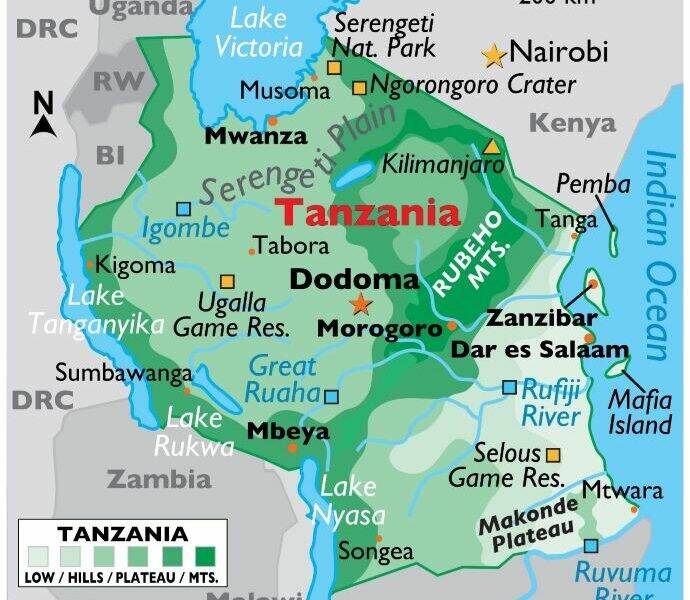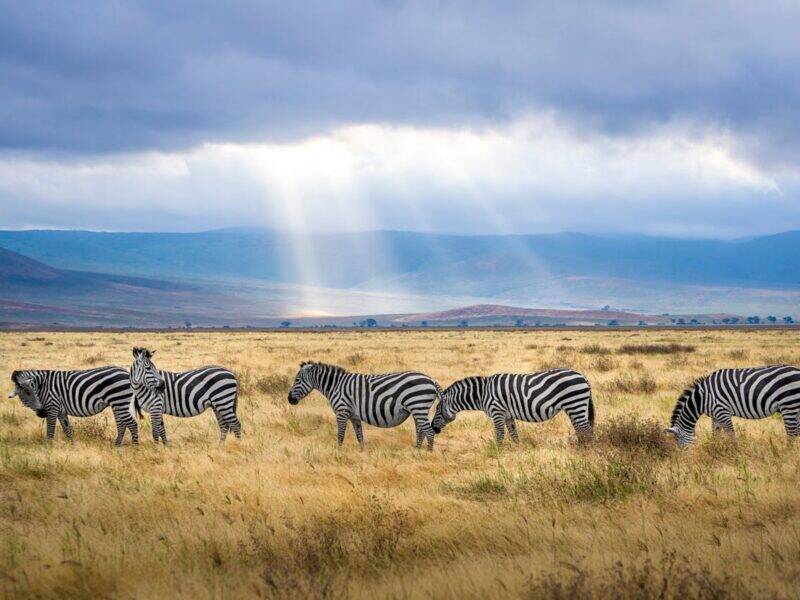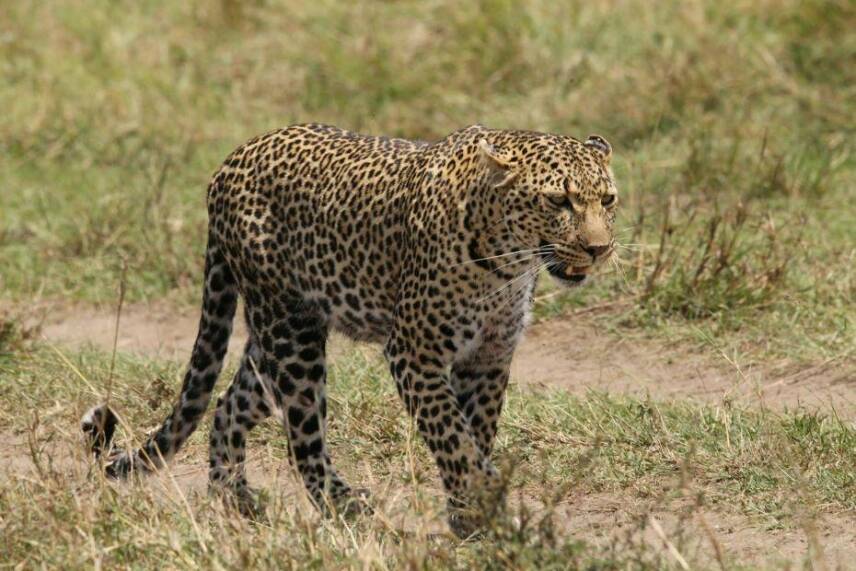Safari hunting in Tanzania is a timeless pursuit that epitomizes the essence of adventure and exploration in the heart of Africa. For those seeking an exclusive and unforgettable safari experience, Tanzania stands out as a premier destination, and with all it has to offer, it has a price tag to match. The country is home to a wide range of wildlife and still allows the hunting of four of the famous Big 5 species: Elephant, lion, buffalo, and leopard.
More than 60 species of animals can be hunted in the country on a tourist-hunting license. Hunting in Tanzania is renowned worldwide for its exceptional game and vast wilderness. However, for many, the cost associated with hunting in this East African nation can seem exorbitant. Many factors contribute to the high expense of hunting in Tanzania, economic, environmental, and regulatory aspects all play a part.
Here we investigate what hunting in Tanzania is truly like as an exclusive experience, exploring the diversity of wildlife, landscapes, accommodations, and cultural encounters that await discerning hunters in this iconic African nation.

[DYNAMIC-BLOGTABLEOFCONTENT]
The Thrill of the Chase
Hunting in Tanzania offers a unique blend of adrenaline-pumping excitement and immersive wilderness encounters. Whether tracking the elusive leopard through the dense undergrowth or stalking the majestic buffalo across the vast savanna, each hunt presents its own set of challenges and rewards. For the discerning hunter, the thrill of the chase is unparalleled in Tanzania’s untamed landscapes.

Iconic Wildlife Encounters
Tanzania is home to some of Africa’s most iconic and sought-after game species, including the African elephant, lion, leopard, buffalo, and African plains game such as kudu, impala, and zebra. Tanzania is also home to some unusual animals like the Zorilla, otherwise known as the pole cat, which is a family of the skunk. Hunting in Tanzania provides the opportunity to encounter these magnificent animals in their natural habitats and observe their behavior and ecology up close.
Exclusive Concessions and Prime Hunting Grounds
Tanzania boasts an abundance of iconic and sought-after game hunting species such as elephants, lions, leopards, buffalo, and more. However, these species are often limited in number due to conservation efforts and habitat loss. Consequently, obtaining safari hunting permits for these coveted species is highly competitive and comes with a hefty price tag to offset their scarcity and ensure sustainable conservation practices.
Hunting concessions in Tanzania are carefully managed areas that encompass vast tracts of wilderness teeming with wildlife. These exclusive concessions offer hunters access to prime hunting grounds where game populations thrive, ensuring a high-quality safari hunting experience. This exclusivity however comes at a price. The Tanzanian government imposes various fees and taxes on hunting operators, including license fees, concession fees, and trophy fees. These regulatory costs are passed on to hunters, contributing to the overall expense of hunting in the country. Additionally, strict compliance with regulations and bureaucratic processes can further inflate operational costs for hunting outfitters, which are then reflected in the prices charged to clients on Tanzania hunting safaris.
The Natural Resources and Tourism Minister, Ezekiel Maige, has introduced new tourist hunting rules, which will see the license fee for Tanzania’s prime hunting blocks rising from $27,000 to $60,000 a year. Under this new structure, the trophy fee for hunting a lion has risen to $12,000, up from just $2,500, and $15,000 to hunt an elephant in Tanzania, up from the previous fee of $5,000.
From the legendary Selous Game Reserve to the remote wilderness of the Ruaha and Katavi, Tanzania’s hunting concessions offer unparalleled opportunities for hunting adventures and discovery.
Luxurious Accommodations and Five-Star Service
Exclusive hunting outfitters in Tanzania pride themselves on providing luxurious accommodations and world-class service for their clients. From elegant safari lodges to spacious tented camps, every aspect of the accommodation is designed to offer comfort, convenience, and style. Gourmet meals, fine wines, and personalized service create a lavish and indulgent atmosphere, allowing guests to relax and unwind in the lap of luxury after a day of hunting adventures. The Tanzanian hunting industry is a niche market catering to an affluent clientele willing to pay a premium for exclusive and authentic wilderness experiences. As such, pricing strategies are influenced by market demand, luxury amenities, and the perceived value of hunting in Tanzania’s pristine landscapes. Economic factors such as exchange rates, inflation, and global market trends also play a role in determining the cost of hunting safari packages offered by outfitters.
Tailored Itineraries and Personalized Experiences
Exclusive hunting experiences in Tanzania can be tailored to suit the preferences and interests of individual clients. Whether seeking a specific trophy species, embarking on a multi-species safari, or combining some hunting adventures with other activities such as photography, birdwatching, or cultural tours, Game Hunting Safaris can offer unique itineraries to fulfill clients’ desires.
With their expert knowledge and attention to detail, Game Hunting Safaris’ chosen outfitters ensure that every aspect of the safari exceeds expectations. Game hunting safaris in Tanzania typically require the expertise of professional guides, trackers, and support staff to ensure a safe and successful experience. These skilled individuals possess extensive knowledge of the local terrain, wildlife behavior, and hunting regulations.
Exclusive hunting safaris in Tanzania are led by experienced professional guides and trackers who possess intimate knowledge of the local terrain and wildlife behavior. These skilled individuals play a crucial role in ensuring the safety and success of the hunt, guiding clients through the intricacies of tracking, stalking, and shooting with precision and expertise. With their guidance, hunters can navigate the challenges of the wilderness with confidence and skill.
The cost of hiring qualified personnel, and providing accommodation, meals, and transportation for clients, adds to the overall expense of hunting expeditions in Tanzania.
The table below shows a breakdown of the number of animals permitted on 21-day, 16-day, and 10-day safari packages by the Tanzania Wildlife Division (Government of Tanzania, 2007).
Anti-Poaching and Conservation
Hunting in Tanzania is conducted with a strong emphasis on ethical and sustainable practices, guided by strict regulations and conservation principles. By targeting mature individuals and adhering to quotas and guidelines set by wildlife authorities, hunters play a vital role in maintaining healthy game populations and conserving habitat. Moreover, hunting revenues contribute to conservation efforts, supporting anti-poaching initiatives, habitat restoration projects, and community development programs. Tanzania has made significant strides in recent years to combat poaching and promote wildlife conservation. The funds generated from hunting permits are instrumental in financing anti-poaching initiatives, habitat restoration, and community development projects. Therefore, the high cost of hunting serves as a crucial source of revenue for conservation efforts, ensuring the long-term viability of Tanzania’s wildlife populations.
Hunting concessions in Tanzania often overlap with areas inhabited by rural communities that rely on natural resources for their livelihoods. Through community-based conservation initiatives, hunting operators contribute to local economies by providing employment opportunities, funding infrastructure projects, and supporting education and healthcare initiatives. The cost of hunting reflects these social responsibilities and the tangible benefits derived by local communities.
Sustainable hunting practices aim to minimize ecological impact and promote the conservation of wildlife habitats. By targeting mature individuals past their prime reproductive age, hunters help maintain healthy population dynamics and prevent the overpopulation of certain species. However, enforcing sustainable hunting practices requires rigorous monitoring, research, and enforcement efforts, which incur additional costs borne by hunters.
Infrastructure and Logistics
Operating hunting safaris in Tanzania’s remote and rugged landscapes presents logistical challenges that necessitate substantial investment in infrastructure and equipment. From maintaining hunting camps and vehicles to securing permits and coordinating logistics, hunting outfitters incur significant overhead costs to ensure the comfort and safety of their clients. These logistical complexities contribute to the overall cost of hunting in Tanzania.
Beyond the thrill of the hunt, hunting in Tanzania offers opportunities for cultural immersion and authentic encounters with local communities. Whether visiting Maasai villages, learning about traditional hunting techniques, or participating in conservation education programs, hunters can gain insights into the rich cultural heritage and conservation challenges facing Tanzania’s diverse populations. These interactions foster understanding, appreciation, and respect for the land and its people.
Memorable Experiences and Lasting Impressions
Hunting in Tanzania is not merely a recreational pursuit; it is a transformative journey that leaves a lasting impression on the hearts and minds of those who undertake it. From the majesty of Africa’s wildlife to the warmth of its people, every moment spent on a safari in Tanzania is imbued with wonder, excitement, and awe. Whether harvesting a trophy of a lifetime or simply savoring the sights and sounds of the wilderness, hunters depart Tanzania with memories to cherish and stories to share for years to come.
The high cost of hunting in Tanzania is a multifaceted phenomenon shaped by factors ranging from conservation priorities and government regulations to market dynamics and economic realities. While the expense may deter some, for others, the opportunity to engage in an unforgettable hunting experience amidst Africa’s wild landscapes is priceless and worth every penny. As Tanzania continues to navigate the delicate balance between conservation and commerce, the cost of hunting will remain a reflection of its commitment to preserving its natural heritage for generations of the future. Fulfilling the dream of a traditional big game hunting safari continues to be a big draw to Tanzania’s unspoiled wilderness.
Hunting in Tanzania as an exclusive experience offers discerning hunters the opportunity to embark on the ultimate safari adventure in one of Africa’s most iconic destinations. With its abundance of wildlife, exclusive concessions, luxurious accommodations, and commitment to sustainability, Tanzania sets the stage for an unforgettable safari hunting experience that combines hunting adventures, luxury, and conservation in equal measure. Whether pursuing trophy game or simply reveling in the wonders of the natural world, hunting in Tanzania promises an experience like no other, where the thrill of the chase is matched only by the beauty of the land and the richness of its wildlife.
Author: T. van Wyk
